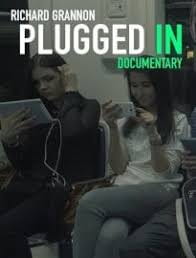Apr
2024
Social Media/Technology
Beyond the Blackboard: How Technology is Transforming Education
 https://onlinelearningconsortium.org/8-things-you-should-know-before-using-social-media-in-your-course/%5B/caption%5D
https://onlinelearningconsortium.org/8-things-you-should-know-before-using-social-media-in-your-course/%5B/caption%5D
Social media use in general and the use of cell phones and technology in schools have been debated greatly. Some believe that social media and technology use is destroying our society while others acknowledge the clear benefits to us personally and our community.
While I acknowledge the benefits of incorporating technology and social media into schools, I believe it must be done thoughtfully and responsibly. It’s important to have a balance between using technology to enhance learning opportunities while reducing its potential negative impacts on students’ well-being and academic performance. Schools should prioritize digital literacy education, promote responsible technology use, and provide support for students to navigate the challenges posed by social media and technology. Additionally, efforts should be made to address any obstacles in accessing technology to ensure that all students can benefit from its educational opportunities.
 https://www.platinumseoservices.com.au/blog/pros-and-cons-of-seo/%5B/caption%5D
https://www.platinumseoservices.com.au/blog/pros-and-cons-of-seo/%5B/caption%5D
The documentary Plugged In: The True Toxicity of Social Media, delves into the impact of technology and social media on students. The documentary features interviews with students from Liverpool University where they discussed how they felt about social media and their experience with it. Hearing directly from these students provides insights into the challenges they may face navigating the digital world. One example from one of the students was from someone who was trans being bullied online in their comments. This led to not actual violence between students, but more emotional and psychological violence for the student themself.
Another story from the documentary was the point of view from Ronan Parke who was a Britain’s Got Talent Runner Up in 2011. His story shows how social media and technology can affect everyone, even little kids who are going on a show to express their talent. Parke explained how because of his gain of popularity, he had to get all of these social media apps at the age of 12 and have them be public, official accounts. This opened the doors to everyone’s opinion which he wasn’t prepared for and really opened his eyes. From this story, what stuck out to me the most was how one of the narrators kept saying “We feel invisible.” This carries a very heavy meaning as it shows the experience of students navigating through technology and social media.
 https://topdocumentaryfilms.com/plugged-in-true-toxicity-social-media-revealed/%5B/caption%5D
https://topdocumentaryfilms.com/plugged-in-true-toxicity-social-media-revealed/%5B/caption%5D
The article The Scientific Debate Over Teens, Screens and Mental Health describes the negative impacts technology and social media have on students and faculty members in the school community. According to Kamenetz (2019), while schools need to monitor what students do on the internet, there can still be negative effects on students. For example, suicide and anxiety rates are increasing, mental health is decreasing, and more parents are becoming concerned about teen tech addiction.
On the other hand, the article Schools Say No to Cellphones in Class. But Is It a Smart Move? highlights both arguments as to whether or not schools should ban cell phones in classrooms. Some argue that it is a distraction, disruption, and misuse by students such as cheating, cyberbullying, and accessing inappropriate content. Some argue that cell phones are valuable educational tools when used appropriately. For example, educational apps, resources, and research opportunities are great tools students should have access to to increase their academic insights.
“The COVID-19 pandemic is quickly demonstrating why online education should be a vital part of teaching and learning” (School of Education, 2020). This sentence from the article How Important Is Technology in Education? Benefits, Challenges, and Impact on Students shows how without technology, learning and teaching would not be possible during quarantine. Other than the pandemic, there are still many beneficial ways in which technology and the use of the Internet in schools affect students and everyone in the education system. For example, technology is becoming more popular every day and the use of it in schools will only improve student performance by providing easy-to-access information, accelerated learning, and fun opportunities to practice what they learn (School of Education, 2020). With it being monitored by schools, and the use of the internet responsibly, it will also increase collaboration and communication among students, teachers, families, and faculty members.
In conclusion, technology and social media have both positive and negative impacts on students and how it affects them, but with it growing more and more each day, it is important to implement technology and the internet into schools.
Resources:
How important is technology in education?: American University. School of Education Online. (2023, April 17). https://soeonline.american.edu/blog/technology-in-education/
Kamenetz, A. (2019, August 27). The scientific debate over teens, screens and Mental Health. NPR. https://www.npr.org/2019/08/27/754362629/the-scientific-debate-over-teens-screens-and-mental-health?utm_source=npr_newsletter&utm_medium=email&utm_content=20190901&utm_campaign=ed&utm_term=nprnews&utm_id=25646263
Klein, A. (2024, April 2). Schools say no to cellphones in class. but is it a smart move?. Education Week. https://www.edweek.org/technology/schools-say-no-to-cellphones-in-class-but-is-it-a-smart-move/2019/09
YouTube. (2019b, January 23). Plugged in : The true toxicity of social media revealed (Mental Health Documentary). YouTube. https://www.youtube.com/watch?v=PHzwMLx-rKc
Malia Savage
April 15, 2024 at 3:54 pm (1 month ago)Hello Kaylee,
I had a great time reading your blog entry! You brought attention to the detrimental effects and addictive qualities of social media on students’ mental health and learning settings, as well as problems like cyberbullying and bad online experiences. Given the increasing prevalence of technology use, how can educators reconcile the positive aspects of technology use—like instructional resources—with the potential drawbacks of social media use? As aspiring educators, it is imperative that we investigate substitute approaches for conscientious usage of social media by our pupils. By including technology into the curriculum, for example, children may be better equipped to use the internet responsibly. Studying and comprehending additional research on the advantages of integrating technology into teaching methods, such as using social media platforms for communication and cooperation, may also be essential. Ensuring everyone’s safety could be advantageous for the education community as a whole. In general, your blog article politely brings up significant issues like mental health, education, technology, and social media. Well done!